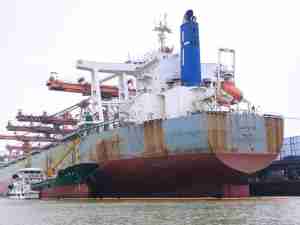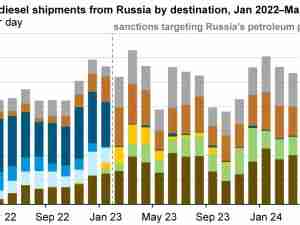Brazil agency blocks Maersk sale of Polvo oilfield stake to HRT
By: Reuters | Oct 17 2014 at 01:20 AM
Brazil’s oil regulator ANP rejected the sale of a 40 percent stake in the Polvo offshore oilfield to HRT Participacoes em Petroleo SA by the oil unit of Danish energy and shipping group A.P. Moller-Maersk, the regulator said on Thursday.
The ANP rejected the planned sale, first announced in July, on the grounds that the economic indicators presented in the most recent revision of the development plan for Polvo were unsatisfactory, the agency said in a statement.
The agency gave no other reason for the rejection. Polvo is located in the Campos offshore basin about 230 km (140 miles) east of Rio de Janeiro. Polvo produced 9,908 barrels of oil and natural gas equivalent a day in August, according to the ANP.
The Brazilian regulator has been increasing pressure on oil companies to develop their assets in a way that maximizes production and royalty payments to the Brazilian government, a situation that has led Brazil’s state-run oil company Petroleo Brasileiro SA to seek international arbitration.
Meanwhile, falling oil prices, increased costs and an increasing perception of exploration and development risk has seen many companies such as Maersk sell their Brazilian assets to smaller companies.
Maersk in July said it plans to take a $1.7 billion writedown on some Brazilian assets because the assets offered returns near the bottom of company expectations.
HRT, which already owned 60 percent of the Polvo field, is counting on the area to increase its cash flow after failing to find commercial oil in its exploration blocks in Namibia and after reducing its stake in its Amazonian natural gas properties. It bought the 60 percent stake from BP Plc last year.
The ANP decision puts in jeopardy plans by HRT to spend $75 million over nine months to upgrade the platform and production system and drill new wells in the field.
HRT’s chief financial officer, Ricardo Bottas, told Reuters on Wednesday during an in interview at company headquarters in Rio de Janeiro that drilling of the new wells would only begin after an ANP approval of the sale of the Maersk stake.
The company planned to seek financing for the wells by using future oil output from the field as a guarantee. (Reporting by Marta Nogueira; Writing by Jeb Blount; Editing by Jonathan Oatis)









